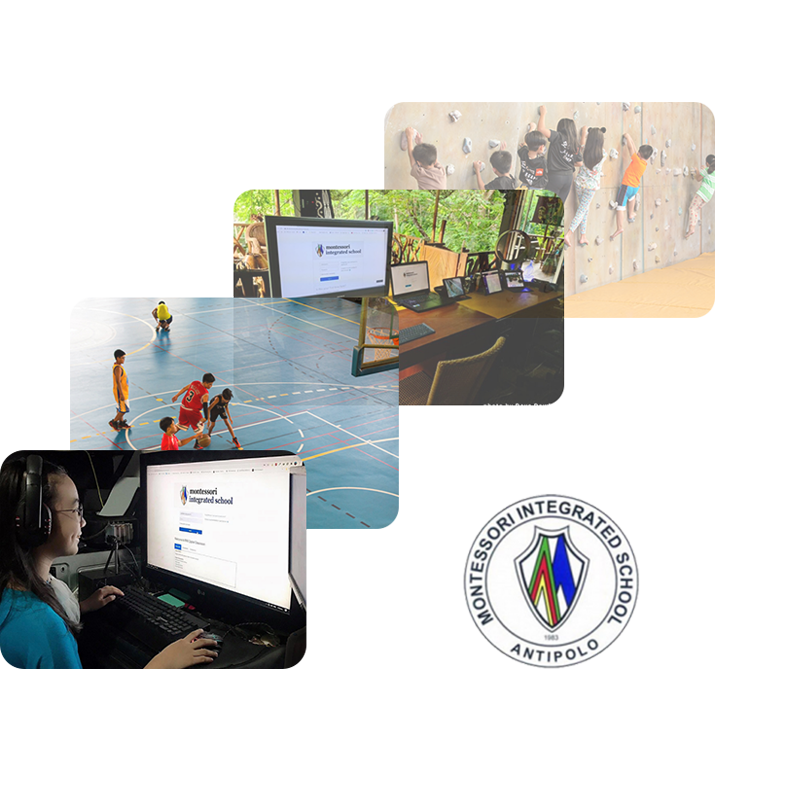Special Education Program
Montessori Integrated School offers multiple Special Education Programs to meet the varying needs of children. The programs are as follows:
- Montessori Children’s House Special Class
- MCH Mainstreaming and Full Mainstreaming
- LEAP
- PALS
- Staggered Integration
- Inclusion
The Special Education Program (SPED) concentrates on children with special educational needs. Here, we develop the child’s functional and academic skills which are needed to live a full life. Our aim is to integrate pupils with special needs into the regular school system, and eventually into the community.
We offer a special class in the pre-school level, and mainstreaming in the pre-school and kinder levels. This continues in the Integrated School’s elementary and High School levels. We also offer special support for Elementary and High School students with special education needs. We have an Alternative Learning Strategies program for students who need practical or functional skills.
The Special Education Program (SPED)
Montessori Children’s House Special Class
Children who have been diagnosed to have Special Education Needs (SEN) are ideally placed first in the MCH Special Class when they are 4 to 8 years old. The goal of this class is to prepare them for mainstreaming in the higher grades.
MCH Mainstreaming and Full Mainstreaming
When a child is ready for a bigger group, he is brought into a regular classroom (either Pre-School or Kinder) for progressively longer periods of time, until he fully adapts to his new environment.
LEAP (Learning Enhancement & Assistance Program)
This program is recommended for children diagnosed with special educational needs who may need special assistance in doing work for the regular academic curriculum. They are assisted by a Pull-out teacher in doing their tasks. They may also have ligher requirements, longer deadlines & different/modified tests. Children in the LEAP who qualify for honors are given special citations at the end of the year.
PALS (Positive Alternative Learning Strategies)
This is offered to children with special needs who cannot cope with the regular academic curriculum and may have already reached the peak of their learning development. It’s goal is to help students improve practical skills such as counting money and transacting with others, so that they can be as self-reliant as possible. Functional academic and vocational skills are strengthened using this program. Performance is monitored using the Special Progress Assessment Chart (PALS-PAC). Students here are guided by PALS teachers and their Grade Level Adviser. Their non-academic subjects are taken with regular classmates.
Inclusion
Children with special educational needs (SEN) are mainstreamed fully into the regular school program provided they are also able to meet the standards of MIS for its regular students. Elementary and high school students who have some diffuculty coping with certain subjects may be given alternative activities, projects and tests. Deadlines may also differ for these students. The principles of Inclusive Education also means that, apart from these minor differences in deadlines and teacher support, both regular students and children with SEN are not distinguished from one another.

